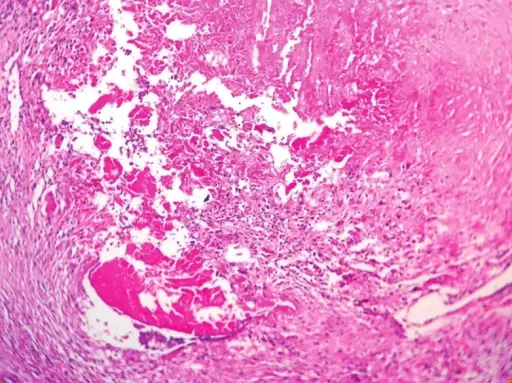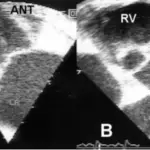Infective endocarditis is an infection of the inner lining of the heart, valves, and great vessels.
What is the Pathology of Endocarditis?
Infective endocarditis pathology is characterized by the presence of aggregates made up of platelets, fibrin, microorganism, inflammatory cells and leaflet disruption. This is caused by bacteria, fungi and viruses.
How does Infective Endocarditis Present?
Infective endocarditis presents with nonspecific symptoms with mostly constitutional complaints such as fever and chills, anorexia, weight loss, malaise, headache, myalgias, night sweats, SOB, cough, and joint pains.
How is Infective Endocarditis Diagnosed?
Infective endocarditis diagnosis includes blood culture, blood work, 2D echo, ultrasound and chest x-ray.
How is Infective Endocarditis Treated?
Infective endocarditis is treated with IV antibiotics, anticoagulation therapy and surgery.
What is the Prognosis of Infective Endocarditis?
Infective endocarditis prognosis is moderate with cure rates ranging from 40%-99% depending on the offending organism involved.



